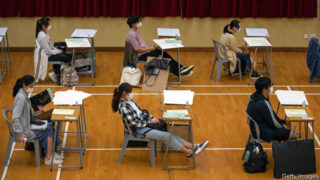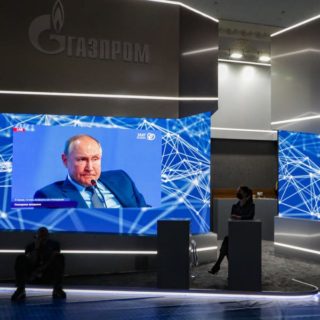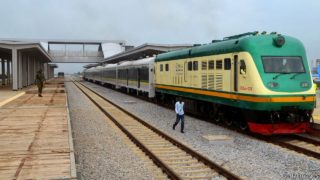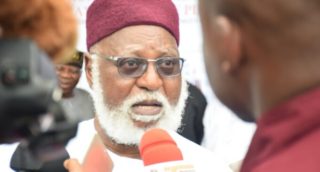The new national-security law has professors scared
A COUPLE of months ago academics would have been desperate to have their names appear in The Economist, laughs a professor at one of Hong Kong’s foremost universities, as she talks during an encrypted phone call. Now she, like every professor from the territory’s universities interviewed for this article, will speak only on condition of anonymity. Such has been the extraordinary effect of China’s national-security law in a city that until recently prided itself on its vibrant seats of learning.
Academic freedom in Hong Kong has been under concerted attack from the Chinese Communist Party (CCP) since the Occupy Central pro-democracy protests of 2014, in which students and professors played a prominent role. A report published in 2018 by Hong Kong Watch, a human-rights organisation, found that, following the demonstrations, bothersome academics had been sacked, had their promotions blocked, or faced orchestrated campaigns demanding their removal, often in Beijing-friendly press outlets. It also concluded that government-appointed figures had begun to govern universities for the benefit of their patrons, rather than students and faculty.
Yet all of those measures were met with open and feisty resistance from professors and students. Academics continued to speak out; students continued to take to the streets in their thousands. What is more, back then it was only the most politically active that had much to fear.
That all changed when, at the end of June, the CCP pushed through its smothering national-security law (NSL), over the head of Hong Kong’s legislature. The law criminalises acts of secession, subversion, terrorism and collusion with foreign forces. It gives authorities extra rights to conduct searches and to appoint judges to try cases—and to extradite suspects to the mainland to face trial under Chinese jurisprudence. Infringements carry harsh penalties, potentially including life imprisonment.
The government points out that under the Basic Law, Hong Kong’s mini-constitution, academic freedom of expression is enshrined. It is also nodded to in Article 4 of the national-security legislation. But “that is not worth the paper it is written on,” says Alvin Cheung, a law professor at New York University, because offences under the new law are so broadly defined that no one knows for sure what constitutes a crime.
That opacity “is a feature not a bug”, reckons Mr Cheung. The idea is to scare academics into self-censorship. “The message from the government is that academics have nothing to worry about if you are law-abiding,” says Eva Pils, a professor at King’s College London and a prominent activist for human rights in China. “But at the back of your mind you ask yourself if you are safe. You are never told where the red lines are. In fact there are no red lines.”
That is already having a stifling effect. One history professor told The Economist that his colleagues have decided to stop teaching classes on China. He himself is nervous even about addressing topics such as the American revolution, in case class discussions alight on the touchy subject of democracy.
The danger to professors takes several forms. The first is from being denounced, whether by colleagues or students themselves. A lecturer from Hong Kong University says he has always been aware that mainland students have been recruited to report back about who is saying what within his lecture theatre. But, he says, the practice seems to be spreading. One of his Cantonese-speaking local students recently took him aside to warn that he had been approached by the Hong Kong Liaison Office—the mainland’s representative office in the territory—to report on class discussions.
That situation may worsen with time, thinks Johnny Patterson of Hong Kong Watch. The Hong Kong government has recently pushed for a more “patriotic” approach within school classrooms. Books deemed critical of China (eg, by authors such as Joshua Wong, a pro-democracy legislator) have been removed from public libraries. Schools have been told to follow suit, and stamp out pro-democracy or anti-China sentiment. Liberal-studies classes, intended to promote independent thinking, are also in the firing line. “Once [pupils] are indoctrinated in schools, what will happen in a decade or so?” wonders Mr Patterson. “Will it lead to a culture of reporting wrong-think?”
Another danger is that what academics may research will be policed. Hong Kong’s most important research-grant-awarding body is the University Grants Committee (UGC). The government has injected HK$20bn ($2.6bn) into its endowment fund. UGC is adamant that it is both independent from government interference and committed to academic freedom—relying on, for example, peer review to decide to whom it should disburse money. But its members are appointed by Hong Kong’s chief executive, who answers to China. One academic worries that the UGC will keep a database of the type of research being proposed, with those considered unsound being flagged up to the university councils that influence promotion, tenure and the like. He has decided not to apply. Several others have been warned by higher-ups in their university departments to remove references that China might find awkward, before putting proposals before the body. UGC says that its databases are for internal use only.
“It will take a while to destroy the…university grants system,” thinks Mr Cheung. “At the moment it is unclear whether bodies set up under the NSL will be able to interfere with the process.” But to a certain degree the question is irrelevant, because the ambiguity is having the desired effect of sowing fear and encouraging self-censorship. It is designed to “create anxiety among academics when they go for funding,” says Ms Pils. And that fear is infectious. On August 10th a professor at the City University of Hong Kong revealed that YouGov, a London-based polling organisation, had told him to withdraw several questions from a survey he was running as part of his research, because of worries that they fell foul of the new law.
Professors express other concerns. Some fear that they might be held responsible for research conducted by their PhD students, forcing them, in effect, into a censor’s role. Others fret that they might brush up against the law on collaborating with a foreign power if they conduct research with a foreign university or accept overseas funding. The law is also extraterritorial, meaning it can be applied to anyone in any country. Responsible academics will therefore have an obligation to consider whether they are putting any foreign collaborators at risk when conducting research, says one professor.
Nor is this solely a matter for humanities and law faculties, looking into irksome questions of democracy, history or localism. “It is a myth that there are ‘safe’ disciplines,” says Robert Quinn of Scholars At Risk, an NGO. “Take for example a professor of public health, who is investigating whether a country’s response to covid-19 has been handled well. They may not intend to embarrass [China], but they might do just that.” Similar concerns might affect scientists working on, for example, big data or artificial intelligence—two strategic concerns for China. Or perhaps a finance professor studying money-laundering, a sensitive topic for Hong Kong and the mainland.
Anchoring all of these concerns are the university councils that govern Hong Kong’s universities. The government appoints the majority of members of the council boards and Hong Kong’s chief executive is officially the chancellor of the territory’s main universities (as was the governor in British colonial times). Many think that a watershed was reached in July when the governing board of Hong Kong University sacked Benny Tai, a law professor and leading light of the Occupy movement. China had long wanted rid of him and he had been convicted for his part in the protests. After his ousting he claimed the decision was not made by the university itself but by “an authority beyond the university through its agents”.
Like the grant-awarding body, the councils claim to be independent of the government’s influence. But given that they are based on a system of patronage, the chief executive does not need explicitly to interfere, says Mr Cheung. “They don’t need to be told how to vote. There are firm incentives to act in Beijing’s favour.”
Whether through self-censorship, prosecutions or sackings, a silencing of the best and brightest minds will be to the detriment of Hong Kong’s vibrant economy, especially if it leads to a leaching of talent. The territory’s world-class universities have been one reason why it has attracted investment from firms across the globe. That advantage is now looking perilous. “What is ultimately at stake is nothing less than Hong Kong’s status as one of the world’s great global cities,” says Mr Quinn.
By The Economist





